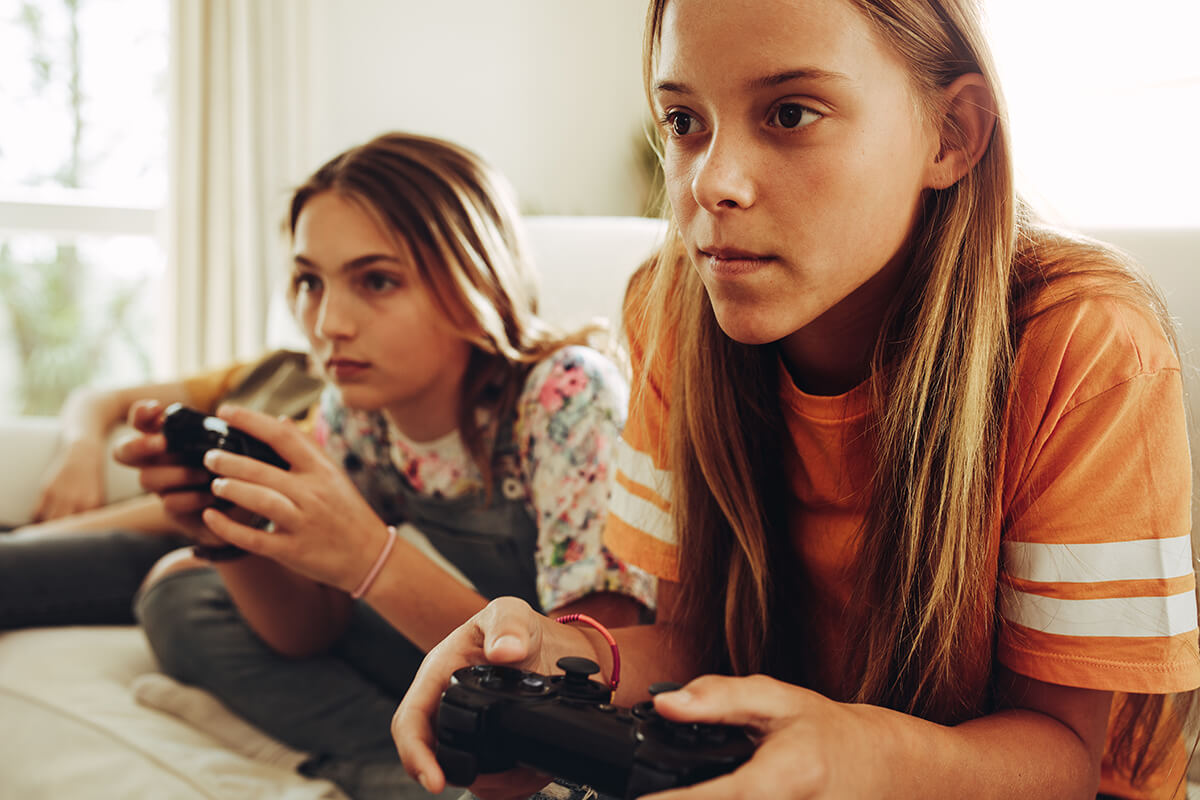Video gaming is a popular leisure activity, with over two billion users in the world. But despite this prevalence, excessive video gaming can lead to problematic behaviour. Most teens who suffer from problematic video gaming behaviour do not know the long-term consequences. As a parent, you should be aware of the effects continued gaming can pose to your child. Venture Academy can help guide you through these issues and provide support if needed.
What Are the Causes?
Video games allow users to feel in control, which is a common desire for most teenagers. This feeling influences many teens to spend loads of time playing video games. Moreover, some games feature in-app purchases and loot boxes that make video games lucrative. Electronic game developers also apply behavioural psychology when designing these games.
Playing them causes the release of the dopamine hormone. When released in large amounts, this hormone stimulates a feeling of satisfaction and reward. This encourages a gamer to continue playing for a prolonged period. However, high levels of dopamine can cause changes in the structure of the brain.
How to Identify Problematic Video Gaming Behaviour
Problematic video gaming has significant effects on the gamer and their family. In most instances, your child may not even notice that they suffer from electronic addiction. The symptoms of the behaviour differ depending on the extent of psychological and physical damage caused. The child may become obsessed with video games and continue playing despite being aware of the effects.
They may also deceive you and other people about the games and jeopardize essential parts of their lives like academics. In some cases, the teen may use the games to escape bad moods like sadness and show a decreased interest in previous leisure activities. Also, your child may display withdrawal symptoms if you take the game away from them. Some of the withdrawal symptoms are sadness, boredom, irritability, and anxiety. In case your child shows most of these symptoms, it is advisable to seek professional help.
The Effects of Problematic Video Gaming Behaviour
Continued and obsessive video gaming can cause physical and psychological effects. Your child may suffer from musculoskeletal problems evident in the form of pain in the back, neck, and wrists. These problems result due to straining various body parts when gaming. Viewing electronic screens for a prolonged period may affect eye structures such as the pupil and iris. So, continued use of video games may cause your child to experience eye problems.
Most video gamers are likely to replace physical activities like walking with playing video games. As such, gaming can cause obesity and other weight-related health issues. Various studies show a positive relation between video gaming and increased Body Mass Index (BMI). Research also indicates that boys who take less than 1.5 hours playing video games are 75.4% less likely to become overweight. On the other hand, those that play for more than 1.5 hours are likely to become obese.
Treatment Options
Most behaviour treatment approaches can be used to treat problematic video gaming behaviour. There is a wide variety of treatment options you can seek for your child. Some of them include:
- Cognitive-behavioural therapy
- Inpatient electronic addiction treatment centers
- Outpatient rehabilitation and treatment programs
- Over the counter and prescription medication
- Wilderness Therapy
Seeking treatment for problematic gaming behaviour can help prevent adverse effects. At Venture Academy, we offer professional behavioural treatment for troubled teens in Canada. We can help your child deal with electronic addiction problems such as problematic video gaming behaviour. Our treatment program entails a blend of education, individualized therapy, and small group processes. Contact us at 866.762.2211 to help your child recover from problematic gaming.







